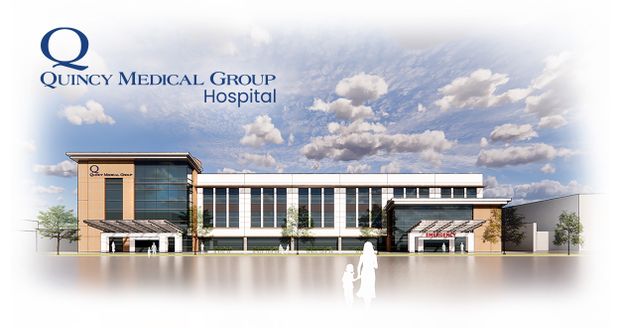
QMG Hospital
A New Era of Healthcare
Managing your health can be tough, but receiving the best care shouldn’t be. Limited healthcare options have led Quincy-area residents to pay disproportionately high rates for healthcare. Quincy Medical Group (QMG) is changing that. With over 1,000 doctors, nurses, and familiar faces, QMG is committed to providing you with affordable and accessible care.
Planning for the Future
Our new small-format hospital is designed to reduce costs and make high-quality patient care accessible to all. We’re not just doctors; we’re your neighbors. We believe you deserve the very best. QMG Hospital is part of QMG’s ongoing mission to improve care for the region, empower patients and their physicians, enhance care coordination and clinical outcomes, expand the community’s choices in healthcare services and reduce costs.
Physician-Led, Community-Focused
Quincy Medical Group Hospital will be a physician-led and governed nonprofit, taxable, organization. Excess revenues earned by the hospital will be reinvested in care and the community.
